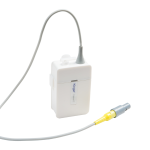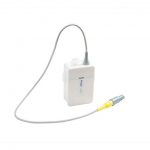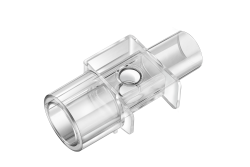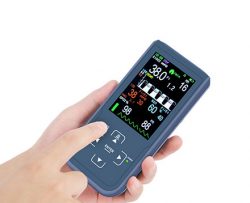EtCO2 Modules
The end-tidal carbon dioxide modules (etco2 modules) independently developed and produced by Kingst can be used with multi-parameter patient monitors, ventilators and anesthesia machines for monitoring of real-time ETCO2 concentration, inhaled CO2 concentration, respiratory rate, inspiratory and expiratory times.
Types of Capnography EtCO2 Module
Mainstream EtCO2 Capnography Module Capno-M
A mainstream end-tidal carbon dioxide monitoring sensor, it has a unique sample cell protects internal NDIR components from pollution.
Sidestream EtCO2 Capnography Module Capno-S
A side stream EtCO2 sensor, accurate and durable, suitable for various complex environments.
Mainstream EtCO2 Capnography Module Capno-M+
A product that can be used for both intubated and non-intubated patients, breaking through the limitation that mainstream modules can only be used for intubated patients.
Sidestream EtCO2 Capnography Module Capno-S+
A side stream EtCO2 sensor, accurate and durable, suitable for various complex environments. Compatible with multiple protocols.
Understanding Capnography EtCO2 Module
Kingst’s end-tidal carbon dioxide (ETCO2) modules are widely used in the operating room, ICU and emergency department, and can be used to monitor whether the position of the endotracheal intubation is correct, whether the spontaneous breathing is restored, whether the parameter settings during mechanical ventilation are reasonable, and whether the cardiopulmonary resuscitation is effective, etc. Kingst’s products have the characteristics of quick response, high accuracy, good quality and stable performance.
Mainstream Vs Sidestream Capnography
ETCO2 Monitoring with mainstream VS side stream CO2 Sensors
Mainstream CO2 sensor
Judging the position of endotracheal intubation
On the patient’airway- quick response
There are neonatal, pediatric and adult adapters available
Side stream CO2 Sensor
Can be used for both intubated and non-intubated patients
The sensor is not directly connected in the ventilation circuit
Sampling without intubation,non-invasive monitoring











